
KNOWING WHERE TO INVEST YOUR CULTURE DOLLARS TO IMPROVE LOYALTY SHOULD BE YOUR #1 PRIORITY
As a business leader, it’s crucial to understand the value of investing in company culture. Culture is more than just the office atmosphere or company events – it’s the core values, beliefs, and behaviors that make up the identity of an organization.
Culture is the foundational bedrock of your business, every bit as important as marketing, reporting, or IT infrastructure. But many companies think of culture as something that happens organically, without needing to spend any money. Ultimately, your culture will be a force multiplier that can either boost or hinder your business. Here are ten areas where culture will make or break your business:
1) Culture is a key factor in employee satisfaction and retention. Happy employees are more likely to stay with a company, leading to lower turnover and recruitment costs. One study from MIT found, “Corporate culture is a much more reliable predictor of industry-adjusted attrition than how employees assess their compensation.”
2) A positive company culture leads to increased productivity and profitability. When employees feel valued and supported, they are more likely to be engaged in their work and go above and beyond for the company.
3) Attracting top talent is essential for any business, and a strong company culture can be a major selling point for job candidates.
4) Culture plays a role in customer satisfaction and loyalty. Customers want to do business with companies that align with their values and beliefs.
5) Building a strong brand reputation is crucial for any business, and culture plays a significant role in this. Companies with a positive culture are more likely to have satisfied employees who will speak positively about their experiences, leading to better word-of-mouth marketing.
6) A healthy company culture fosters innovation and creativity. Employees are more likely to come up with new ideas and take risks when they feel supported and encouraged to do so. Brene Brown, bestselling author of “Dare to Lead,” sums this up by saying, “There is no creativity without vulnerability.”
7) Investing in culture can help to build trust and teamwork within a company. When employees feel like they are part of a cohesive team, they are more likely to collaborate and support one another.
8) A strong culture can lead to better conflict resolution. When employees feel like they are part of a positive and supportive work environment, they are more likely to approach conflicts in a constructive way.
9) Positive word of mouth. Your culture is a de facto advertisement for your brand. Investing in a positive culture is also marketing your products and services to your employees’ network of friends and family.
10) Finally, investing in culture can have a positive impact on the overall health and well-being of employees. When employees feel supported and valued, they are more likely to take care of themselves and prioritize their own well-being. This is a great altruistic motivation, but will also trickle into your bottom line with healthier employees doing better work and missing less time due to illness.
With so much riding on your company culture, it is critical to understand where to direct internal investments to curate a great company culture. Without a roadmap, you are bound to waste resources, and in the process lose the confidence of leadership who may already be skeptical of the ROI of culture spending.
Focused, targeted budgets can move the needle in a big way and turn a stale company culture into something worth bragging about. This is not an unknowable art form — there is a playbook.
THE EMPLOYEE LOYALTY INDEX
We call the playbook the Employee Loyalty Index. It is an objective measure of all the data points that employees care about in the work environment and an effective way to measure where money should be spent in order to hit the desired culture goals.
By tracking these key indicators, companies are able to measure what is working and what isn’t, allowing them to invest their culture dollars wisely. When companies know where to invest their culture dollars, they can have a huge impact on their employees and the success of their business.
The index follows a hierarchy of needs, from the most basic workplace need — safety — to an employee’s highest workplace need — meaning. We score your company against this rubric to highlight the most critical areas to address with budget and attention. This gives you laser-focus to improve your culture quickly and efficiently.
WHISTLE, THE EMPLOYEE LOYALTY APP
There are many factors that influence employee loyalty but Whistle is the first employee loyalty app specifically designed for that purpose. By leveraging Whistle and integrating with other programs, Whistle can help companies improve both their top and bottom line.
In a recent case study, Whistle helped a manufacturing company reduce turnover by 26% in just 90 days through a redesigned onboarding program. Whistle’s employee loyalty app brought the company’s on-boarding process into the digital age and put it in every employee’s pocket. Employees raved about the mobile-first experience and cash reward system.
Companies are using Whistle to help people-managers improve relationships with their direct reports, rethinking incentives and rewards, and even changing their approach to culture – building a more inclusive workplace and helping to attract quality candidates.
Contact us for a free demo and better understand how much you can improve employee loyalty when using an employee loyalty app!
Forget the Bells. You Just Need Whistle.
Overwhelmed? Let us help you build a better onboarding experience, improve leadership training, or find innovative ways to appreciate your people — start by speaking to a consultant for free.
Additional posts you might find interesting
 /wp-content/uploads/2025/07/Screenshot-2025-07-28-at-5.29.24 PM.png 330 1192 Chris Dornfeld /wp-content/uploads/2025/12/Whistle_Rewards_w_A_One10_Co-POS_Navy-300x150.png Chris Dornfeld2025-07-17 22:18:022025-07-28 23:02:36One10 Accelerates Incentive Innovation with Whistle Acquisition
/wp-content/uploads/2025/07/Screenshot-2025-07-28-at-5.29.24 PM.png 330 1192 Chris Dornfeld /wp-content/uploads/2025/12/Whistle_Rewards_w_A_One10_Co-POS_Navy-300x150.png Chris Dornfeld2025-07-17 22:18:022025-07-28 23:02:36One10 Accelerates Incentive Innovation with Whistle Acquisition /wp-content/uploads/2025/07/FI-AI-in-construction-July-2025.png 780 940 Chris Dornfeld /wp-content/uploads/2025/12/Whistle_Rewards_w_A_One10_Co-POS_Navy-300x150.png Chris Dornfeld2025-07-15 15:20:192025-07-15 15:20:19AI in Safety: Predicting and Preventing Hazards Before They Happen
/wp-content/uploads/2025/07/FI-AI-in-construction-July-2025.png 780 940 Chris Dornfeld /wp-content/uploads/2025/12/Whistle_Rewards_w_A_One10_Co-POS_Navy-300x150.png Chris Dornfeld2025-07-15 15:20:192025-07-15 15:20:19AI in Safety: Predicting and Preventing Hazards Before They Happen /wp-content/uploads/2025/04/FI-Haugland-Group-Case-Study.png 780 940 Chris Dornfeld /wp-content/uploads/2025/12/Whistle_Rewards_w_A_One10_Co-POS_Navy-300x150.png Chris Dornfeld2025-04-30 20:53:522025-04-30 20:53:52Haugland Improves Procore Use by 200%
/wp-content/uploads/2025/04/FI-Haugland-Group-Case-Study.png 780 940 Chris Dornfeld /wp-content/uploads/2025/12/Whistle_Rewards_w_A_One10_Co-POS_Navy-300x150.png Chris Dornfeld2025-04-30 20:53:522025-04-30 20:53:52Haugland Improves Procore Use by 200%
Improving Mental Health in Construction: How Recognition and Rewards Can Save Lives
 /wp-content/uploads/2025/04/FI-Whistle-Forms.png 780 940 Chris Dornfeld /wp-content/uploads/2025/12/Whistle_Rewards_w_A_One10_Co-POS_Navy-300x150.png Chris Dornfeld2025-04-28 17:58:512025-04-28 17:58:51Whistle Forms: Compliance Made Easy
/wp-content/uploads/2025/04/FI-Whistle-Forms.png 780 940 Chris Dornfeld /wp-content/uploads/2025/12/Whistle_Rewards_w_A_One10_Co-POS_Navy-300x150.png Chris Dornfeld2025-04-28 17:58:512025-04-28 17:58:51Whistle Forms: Compliance Made Easy
5 Ways Safety Leaders Can Boost Employee Retention

Company Merchandise Stores
 /wp-content/uploads/2025/01/FI-Photo-Uploads-for-Recognition.png 780 940 Chris Dornfeld /wp-content/uploads/2025/12/Whistle_Rewards_w_A_One10_Co-POS_Navy-300x150.png Chris Dornfeld2025-01-12 21:53:032025-03-05 00:33:30Whistle Rewards Launches New Photo Uploads Feature
/wp-content/uploads/2025/01/FI-Photo-Uploads-for-Recognition.png 780 940 Chris Dornfeld /wp-content/uploads/2025/12/Whistle_Rewards_w_A_One10_Co-POS_Navy-300x150.png Chris Dornfeld2025-01-12 21:53:032025-03-05 00:33:30Whistle Rewards Launches New Photo Uploads Feature
Transforming Safety Culture with Whistle Rewards
 /wp-content/uploads/2024/12/FI-AI-powered-recognition.png 780 940 Chris Dornfeld /wp-content/uploads/2025/12/Whistle_Rewards_w_A_One10_Co-POS_Navy-300x150.png Chris Dornfeld2024-12-12 19:07:322024-12-12 19:40:44Whistle Rewards’ New AI-Powered Recognition Assistant
/wp-content/uploads/2024/12/FI-AI-powered-recognition.png 780 940 Chris Dornfeld /wp-content/uploads/2025/12/Whistle_Rewards_w_A_One10_Co-POS_Navy-300x150.png Chris Dornfeld2024-12-12 19:07:322024-12-12 19:40:44Whistle Rewards’ New AI-Powered Recognition Assistant
Why Rewards Work So Well with Project Management Tools in Construction

23% of construction companies plan to add more monetary rewards in 2025

Using Paychecks for Recognition is a Waste

How Technology Will Reshape the Construction Workforce in the Next Five Years

Shannon Construction increases Daily Log reporting in Procore by 863%!
 /wp-content/uploads/2024/10/FI-Use-QR-codes-to-easily-send-group-rewards.png 780 940 Chris Dornfeld /wp-content/uploads/2025/12/Whistle_Rewards_w_A_One10_Co-POS_Navy-300x150.png Chris Dornfeld2024-10-01 12:40:562024-10-01 12:40:56Scan QR codes to add people to a spot reward group
/wp-content/uploads/2024/10/FI-Use-QR-codes-to-easily-send-group-rewards.png 780 940 Chris Dornfeld /wp-content/uploads/2025/12/Whistle_Rewards_w_A_One10_Co-POS_Navy-300x150.png Chris Dornfeld2024-10-01 12:40:562024-10-01 12:40:56Scan QR codes to add people to a spot reward group
Smartphones: A better way to engage
 /wp-content/uploads/2024/09/FI-Case-Study-Korte-Safety-Reporting.png 780 940 Chris Dornfeld /wp-content/uploads/2025/12/Whistle_Rewards_w_A_One10_Co-POS_Navy-300x150.png Chris Dornfeld2024-09-01 13:42:572024-12-08 22:51:03Korte Boosts Safety Reporting by 50%
/wp-content/uploads/2024/09/FI-Case-Study-Korte-Safety-Reporting.png 780 940 Chris Dornfeld /wp-content/uploads/2025/12/Whistle_Rewards_w_A_One10_Co-POS_Navy-300x150.png Chris Dornfeld2024-09-01 13:42:572024-12-08 22:51:03Korte Boosts Safety Reporting by 50% /wp-content/uploads/2024/08/FI-Employee-Rewards-frequency-matters-more.png 780 940 Drew Carter /wp-content/uploads/2025/12/Whistle_Rewards_w_A_One10_Co-POS_Navy-300x150.png Drew Carter2024-08-26 17:17:592024-09-12 15:02:07Employee Rewards: Frequency matters more
/wp-content/uploads/2024/08/FI-Employee-Rewards-frequency-matters-more.png 780 940 Drew Carter /wp-content/uploads/2025/12/Whistle_Rewards_w_A_One10_Co-POS_Navy-300x150.png Drew Carter2024-08-26 17:17:592024-09-12 15:02:07Employee Rewards: Frequency matters more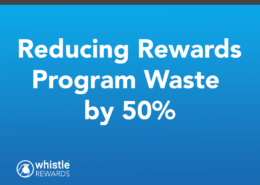 /wp-content/uploads/2024/08/FI-Case-Study-Reducing-Rewards-Program-Waste.png 780 940 Drew Carter /wp-content/uploads/2025/12/Whistle_Rewards_w_A_One10_Co-POS_Navy-300x150.png Drew Carter2024-08-23 21:20:102024-08-28 15:14:51Reducing reward waste by 50%
/wp-content/uploads/2024/08/FI-Case-Study-Reducing-Rewards-Program-Waste.png 780 940 Drew Carter /wp-content/uploads/2025/12/Whistle_Rewards_w_A_One10_Co-POS_Navy-300x150.png Drew Carter2024-08-23 21:20:102024-08-28 15:14:51Reducing reward waste by 50%
Whistle Rewards Selected to Join Google AI Academy for American Infrastructure

Why Rewarding Your Construction Staff Is More Than Just “Paying Twice”

Behavioral Science in the Construction Industry: Avoiding the Boomerang Effect
 /wp-content/uploads/2024/08/FI-Case-Study-better-learning-incentives.png 780 940 Chris Dornfeld /wp-content/uploads/2025/12/Whistle_Rewards_w_A_One10_Co-POS_Navy-300x150.png Chris Dornfeld2024-07-27 16:32:192024-08-28 15:42:09Learning Incentives Save Time and Money
/wp-content/uploads/2024/08/FI-Case-Study-better-learning-incentives.png 780 940 Chris Dornfeld /wp-content/uploads/2025/12/Whistle_Rewards_w_A_One10_Co-POS_Navy-300x150.png Chris Dornfeld2024-07-27 16:32:192024-08-28 15:42:09Learning Incentives Save Time and Money
Whistle Rewards: BuiltWorlds 2024 Start-up Competition Winner!

Upload Funds To Your Whistle Rewards Account
 /wp-content/uploads/2024/07/FI-The-Ugly-Truth-about-Gift-Cards.png 780 940 Drew Carter /wp-content/uploads/2025/12/Whistle_Rewards_w_A_One10_Co-POS_Navy-300x150.png Drew Carter2024-07-14 19:01:272024-07-14 19:01:27The Ugly Truth About Gift Cards
/wp-content/uploads/2024/07/FI-The-Ugly-Truth-about-Gift-Cards.png 780 940 Drew Carter /wp-content/uploads/2025/12/Whistle_Rewards_w_A_One10_Co-POS_Navy-300x150.png Drew Carter2024-07-14 19:01:272024-07-14 19:01:27The Ugly Truth About Gift Cards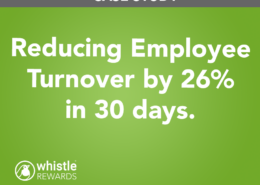
Reducing Employee Turnover by 26% in 30 Days
 /wp-content/uploads/2024/06/FI-Crowding-in-motivation.png 780 940 Chris Dornfeld /wp-content/uploads/2025/12/Whistle_Rewards_w_A_One10_Co-POS_Navy-300x150.png Chris Dornfeld2024-06-05 19:40:462024-06-05 19:40:46Crowding-in Motivation for Lasting Impact
/wp-content/uploads/2024/06/FI-Crowding-in-motivation.png 780 940 Chris Dornfeld /wp-content/uploads/2025/12/Whistle_Rewards_w_A_One10_Co-POS_Navy-300x150.png Chris Dornfeld2024-06-05 19:40:462024-06-05 19:40:46Crowding-in Motivation for Lasting Impact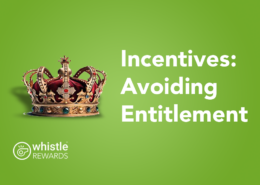 /wp-content/uploads/2024/04/FI-Incentives-avoiding-entitlement.png 780 940 Chris Dornfeld /wp-content/uploads/2025/12/Whistle_Rewards_w_A_One10_Co-POS_Navy-300x150.png Chris Dornfeld2024-04-17 22:20:382024-04-17 22:20:38Incentives: Avoiding Entitlement with these 3 steps
/wp-content/uploads/2024/04/FI-Incentives-avoiding-entitlement.png 780 940 Chris Dornfeld /wp-content/uploads/2025/12/Whistle_Rewards_w_A_One10_Co-POS_Navy-300x150.png Chris Dornfeld2024-04-17 22:20:382024-04-17 22:20:38Incentives: Avoiding Entitlement with these 3 steps /wp-content/uploads/2024/04/FI-Birthday-and-Service-Anniversary-Rewards.png 780 940 Chris Dornfeld /wp-content/uploads/2025/12/Whistle_Rewards_w_A_One10_Co-POS_Navy-300x150.png Chris Dornfeld2024-04-11 20:45:052024-04-11 20:45:05Whistle’s New Birthday and Service Anniversary Rewards
/wp-content/uploads/2024/04/FI-Birthday-and-Service-Anniversary-Rewards.png 780 940 Chris Dornfeld /wp-content/uploads/2025/12/Whistle_Rewards_w_A_One10_Co-POS_Navy-300x150.png Chris Dornfeld2024-04-11 20:45:052024-04-11 20:45:05Whistle’s New Birthday and Service Anniversary Rewards /wp-content/uploads/2024/04/FI-5-concepts-shaping-whistle-rewards.png 780 940 Chris Dornfeld /wp-content/uploads/2025/12/Whistle_Rewards_w_A_One10_Co-POS_Navy-300x150.png Chris Dornfeld2024-04-02 20:33:482024-04-17 14:09:535 Concepts That Shape Whistle Rewards
/wp-content/uploads/2024/04/FI-5-concepts-shaping-whistle-rewards.png 780 940 Chris Dornfeld /wp-content/uploads/2025/12/Whistle_Rewards_w_A_One10_Co-POS_Navy-300x150.png Chris Dornfeld2024-04-02 20:33:482024-04-17 14:09:535 Concepts That Shape Whistle Rewards /wp-content/uploads/2024/04/FI-Cash-is-king.png 780 940 Chris Dornfeld /wp-content/uploads/2025/12/Whistle_Rewards_w_A_One10_Co-POS_Navy-300x150.png Chris Dornfeld2024-04-02 16:58:332024-04-02 16:58:33Why Cash is King for Construction Safety Incentives
/wp-content/uploads/2024/04/FI-Cash-is-king.png 780 940 Chris Dornfeld /wp-content/uploads/2025/12/Whistle_Rewards_w_A_One10_Co-POS_Navy-300x150.png Chris Dornfeld2024-04-02 16:58:332024-04-02 16:58:33Why Cash is King for Construction Safety Incentives /wp-content/uploads/2024/03/FI-How-To-Send-a-Spot-Reward-in-Procore.png 780 940 Chris Dornfeld /wp-content/uploads/2025/12/Whistle_Rewards_w_A_One10_Co-POS_Navy-300x150.png Chris Dornfeld2024-03-21 03:42:242024-06-14 15:33:38Send a Spot Reward in Procore
/wp-content/uploads/2024/03/FI-How-To-Send-a-Spot-Reward-in-Procore.png 780 940 Chris Dornfeld /wp-content/uploads/2025/12/Whistle_Rewards_w_A_One10_Co-POS_Navy-300x150.png Chris Dornfeld2024-03-21 03:42:242024-06-14 15:33:38Send a Spot Reward in Procore
Add Incentives to Procore Submittal Log to Boost Profitability and Safety.
 /wp-content/uploads/2024/02/FI-Combatting-Burnout-in-Healthcare.png 418 576 Chris Dornfeld /wp-content/uploads/2025/12/Whistle_Rewards_w_A_One10_Co-POS_Navy-300x150.png Chris Dornfeld2024-02-25 13:16:362024-02-25 13:18:55Combating Burnout in Healthcare with Rewards and Recognition
/wp-content/uploads/2024/02/FI-Combatting-Burnout-in-Healthcare.png 418 576 Chris Dornfeld /wp-content/uploads/2025/12/Whistle_Rewards_w_A_One10_Co-POS_Navy-300x150.png Chris Dornfeld2024-02-25 13:16:362024-02-25 13:18:55Combating Burnout in Healthcare with Rewards and Recognition /wp-content/uploads/2024/02/FI-harnessing-the-power-of-rewards-in-construction.png 418 576 Chris Dornfeld /wp-content/uploads/2025/12/Whistle_Rewards_w_A_One10_Co-POS_Navy-300x150.png Chris Dornfeld2024-02-24 00:43:172024-03-24 13:23:00Harnessing the Power of Timely Rewards in Construction
/wp-content/uploads/2024/02/FI-harnessing-the-power-of-rewards-in-construction.png 418 576 Chris Dornfeld /wp-content/uploads/2025/12/Whistle_Rewards_w_A_One10_Co-POS_Navy-300x150.png Chris Dornfeld2024-02-24 00:43:172024-03-24 13:23:00Harnessing the Power of Timely Rewards in Construction /wp-content/uploads/2024/02/FI-Social-Recognition.png 780 940 Chris Dornfeld /wp-content/uploads/2025/12/Whistle_Rewards_w_A_One10_Co-POS_Navy-300x150.png Chris Dornfeld2024-02-21 22:58:482024-02-24 00:50:53Whistle Reward’s New Recognition Tools
/wp-content/uploads/2024/02/FI-Social-Recognition.png 780 940 Chris Dornfeld /wp-content/uploads/2025/12/Whistle_Rewards_w_A_One10_Co-POS_Navy-300x150.png Chris Dornfeld2024-02-21 22:58:482024-02-24 00:50:53Whistle Reward’s New Recognition Tools /wp-content/uploads/2024/04/FI-incentives-versus-rewards.png 780 940 Chris Dornfeld /wp-content/uploads/2025/12/Whistle_Rewards_w_A_One10_Co-POS_Navy-300x150.png Chris Dornfeld2024-02-03 20:42:142024-04-03 21:18:05Incentives versus Rewards
/wp-content/uploads/2024/04/FI-incentives-versus-rewards.png 780 940 Chris Dornfeld /wp-content/uploads/2025/12/Whistle_Rewards_w_A_One10_Co-POS_Navy-300x150.png Chris Dornfeld2024-02-03 20:42:142024-04-03 21:18:05Incentives versus Rewards /wp-content/uploads/2024/01/FI-FAQs.png 780 940 Chris Dornfeld /wp-content/uploads/2025/12/Whistle_Rewards_w_A_One10_Co-POS_Navy-300x150.png Chris Dornfeld2024-01-05 16:07:132024-03-29 15:15:13New Client Frequently Asked Questions
/wp-content/uploads/2024/01/FI-FAQs.png 780 940 Chris Dornfeld /wp-content/uploads/2025/12/Whistle_Rewards_w_A_One10_Co-POS_Navy-300x150.png Chris Dornfeld2024-01-05 16:07:132024-03-29 15:15:13New Client Frequently Asked Questions /wp-content/uploads/2024/01/FI-How-To-add-Whistle-Rewards-to-Procore.png 780 940 Chris Dornfeld /wp-content/uploads/2025/12/Whistle_Rewards_w_A_One10_Co-POS_Navy-300x150.png Chris Dornfeld2024-01-01 12:12:382024-04-03 22:08:43Add Whistle Rewards to your Procore Account
/wp-content/uploads/2024/01/FI-How-To-add-Whistle-Rewards-to-Procore.png 780 940 Chris Dornfeld /wp-content/uploads/2025/12/Whistle_Rewards_w_A_One10_Co-POS_Navy-300x150.png Chris Dornfeld2024-01-01 12:12:382024-04-03 22:08:43Add Whistle Rewards to your Procore Account /wp-content/uploads/2024/03/FI-How-To-Improve-Safety-Incedent-Reporting-in-Procore.png 780 940 Chris Dornfeld /wp-content/uploads/2025/12/Whistle_Rewards_w_A_One10_Co-POS_Navy-300x150.png Chris Dornfeld2023-12-15 16:43:012024-06-14 15:35:08Improving Safety Incident Reporting in Procore
/wp-content/uploads/2024/03/FI-How-To-Improve-Safety-Incedent-Reporting-in-Procore.png 780 940 Chris Dornfeld /wp-content/uploads/2025/12/Whistle_Rewards_w_A_One10_Co-POS_Navy-300x150.png Chris Dornfeld2023-12-15 16:43:012024-06-14 15:35:08Improving Safety Incident Reporting in Procore /wp-content/uploads/2023/11/Gratitude-w-title-narrower.png 450 583 Chris Dornfeld /wp-content/uploads/2025/12/Whistle_Rewards_w_A_One10_Co-POS_Navy-300x150.png Chris Dornfeld2023-11-19 01:44:372023-11-19 01:51:52Tis the Season to Be Jolly and Practice Gratitude
/wp-content/uploads/2023/11/Gratitude-w-title-narrower.png 450 583 Chris Dornfeld /wp-content/uploads/2025/12/Whistle_Rewards_w_A_One10_Co-POS_Navy-300x150.png Chris Dornfeld2023-11-19 01:44:372023-11-19 01:51:52Tis the Season to Be Jolly and Practice Gratitude
The Right Tool for the Job: Improving Construction Projects Using Rewards and Incentives
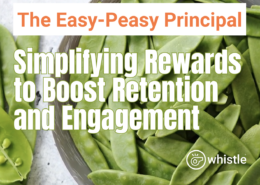 /wp-content/uploads/2023/10/Screenshot-2023-10-16-at-12.24.20-PM.png 950 1244 Chris Dornfeld /wp-content/uploads/2025/12/Whistle_Rewards_w_A_One10_Co-POS_Navy-300x150.png Chris Dornfeld2023-10-16 17:01:322023-10-16 17:01:32Simplifying Rewards to Boost Retention and Engagement
/wp-content/uploads/2023/10/Screenshot-2023-10-16-at-12.24.20-PM.png 950 1244 Chris Dornfeld /wp-content/uploads/2025/12/Whistle_Rewards_w_A_One10_Co-POS_Navy-300x150.png Chris Dornfeld2023-10-16 17:01:322023-10-16 17:01:32Simplifying Rewards to Boost Retention and Engagement
Building Great Cultures in a Post-Pandemic Era of Hybrid Work and Rapidly Changing Technology

The Irrefutable Carrot Conundrum: Why Positive Reinforcement Triumphs in the Workplace

The Carrot Chronicles: 12 Commandments of Influential Employee Rewards and Recognition
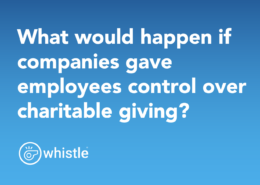 /wp-content/uploads/2023/08/Screenshot-2023-08-21-at-5.56.59-PM.png 984 1372 Chris Dornfeld /wp-content/uploads/2025/12/Whistle_Rewards_w_A_One10_Co-POS_Navy-300x150.png Chris Dornfeld2023-08-21 20:51:222023-08-21 22:59:27Creating Employee Loyalty with Corporate Philanthropy
/wp-content/uploads/2023/08/Screenshot-2023-08-21-at-5.56.59-PM.png 984 1372 Chris Dornfeld /wp-content/uploads/2025/12/Whistle_Rewards_w_A_One10_Co-POS_Navy-300x150.png Chris Dornfeld2023-08-21 20:51:222023-08-21 22:59:27Creating Employee Loyalty with Corporate Philanthropy /wp-content/uploads/2023/07/Screenshot-2023-07-14-at-10.34.33-AM-1.png 702 877 Drew Carter /wp-content/uploads/2025/12/Whistle_Rewards_w_A_One10_Co-POS_Navy-300x150.png Drew Carter2023-07-14 15:13:002023-07-14 16:16:50Maximizing Employee Retention in the Banking Industry
/wp-content/uploads/2023/07/Screenshot-2023-07-14-at-10.34.33-AM-1.png 702 877 Drew Carter /wp-content/uploads/2025/12/Whistle_Rewards_w_A_One10_Co-POS_Navy-300x150.png Drew Carter2023-07-14 15:13:002023-07-14 16:16:50Maximizing Employee Retention in the Banking Industry /wp-content/uploads/2023/07/Screenshot-2023-07-13-at-10.57.02-AM.png 498 622 Chris Dornfeld /wp-content/uploads/2025/12/Whistle_Rewards_w_A_One10_Co-POS_Navy-300x150.png Chris Dornfeld2023-07-13 15:33:292023-07-13 16:00:14The Importance of Timely Rewards in the Banking Industry
/wp-content/uploads/2023/07/Screenshot-2023-07-13-at-10.57.02-AM.png 498 622 Chris Dornfeld /wp-content/uploads/2025/12/Whistle_Rewards_w_A_One10_Co-POS_Navy-300x150.png Chris Dornfeld2023-07-13 15:33:292023-07-13 16:00:14The Importance of Timely Rewards in the Banking Industry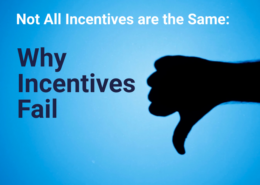 /wp-content/uploads/2023/07/Screenshot-2023-07-13-at-11.01.25-AM.png 550 688 Drew Carter /wp-content/uploads/2025/12/Whistle_Rewards_w_A_One10_Co-POS_Navy-300x150.png Drew Carter2023-07-13 02:20:122023-07-13 16:04:03Why Incentives Fail
/wp-content/uploads/2023/07/Screenshot-2023-07-13-at-11.01.25-AM.png 550 688 Drew Carter /wp-content/uploads/2025/12/Whistle_Rewards_w_A_One10_Co-POS_Navy-300x150.png Drew Carter2023-07-13 02:20:122023-07-13 16:04:03Why Incentives Fail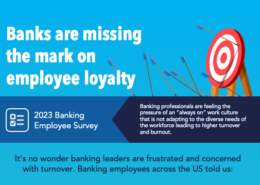 /wp-content/uploads/2023/06/FI-Bank-are-missing-the-mark.png 359 540 Chris Dornfeld /wp-content/uploads/2025/12/Whistle_Rewards_w_A_One10_Co-POS_Navy-300x150.png Chris Dornfeld2023-06-14 02:29:452023-06-14 02:40:35Banks are missing the mark on employee loyalty
/wp-content/uploads/2023/06/FI-Bank-are-missing-the-mark.png 359 540 Chris Dornfeld /wp-content/uploads/2025/12/Whistle_Rewards_w_A_One10_Co-POS_Navy-300x150.png Chris Dornfeld2023-06-14 02:29:452023-06-14 02:40:35Banks are missing the mark on employee loyalty /wp-content/uploads/2023/05/Custom-dimensions-1600x900-px-Custom-dimensions.jpeg 1440 1880 Chris Dornfeld /wp-content/uploads/2025/12/Whistle_Rewards_w_A_One10_Co-POS_Navy-300x150.png Chris Dornfeld2023-05-11 16:41:062023-05-11 16:42:14Making Employee Retention Personal: Meaning
/wp-content/uploads/2023/05/Custom-dimensions-1600x900-px-Custom-dimensions.jpeg 1440 1880 Chris Dornfeld /wp-content/uploads/2025/12/Whistle_Rewards_w_A_One10_Co-POS_Navy-300x150.png Chris Dornfeld2023-05-11 16:41:062023-05-11 16:42:14Making Employee Retention Personal: Meaning /wp-content/uploads/2022/08/FI-the-5-pitfalls-of-corporate-gift-cards.png 780 940 Drew Carter /wp-content/uploads/2025/12/Whistle_Rewards_w_A_One10_Co-POS_Navy-300x150.png Drew Carter2023-04-27 21:19:432023-05-03 16:32:51The 5 Pitfalls of Corporate Gift Cards
/wp-content/uploads/2022/08/FI-the-5-pitfalls-of-corporate-gift-cards.png 780 940 Drew Carter /wp-content/uploads/2025/12/Whistle_Rewards_w_A_One10_Co-POS_Navy-300x150.png Drew Carter2023-04-27 21:19:432023-05-03 16:32:51The 5 Pitfalls of Corporate Gift Cards
SMS Text Feature makes Whistle the easiest employee payments and reward tool ever

The Importance of Aligning Company Values with Business Trajectory

The Importance of Measuring Gender Inclusivity in the Workplace

Creating a Sense of Belonging For your Employees
 /wp-content/uploads/2023/03/Custom-dimensions-80x80-px-Logo-Custom-dimensions.jpeg 740 920 Chris Dornfeld /wp-content/uploads/2025/12/Whistle_Rewards_w_A_One10_Co-POS_Navy-300x150.png Chris Dornfeld2023-03-06 19:01:362023-03-06 19:05:36BankTalentHQ Announces Partnership with Whistle
/wp-content/uploads/2023/03/Custom-dimensions-80x80-px-Logo-Custom-dimensions.jpeg 740 920 Chris Dornfeld /wp-content/uploads/2025/12/Whistle_Rewards_w_A_One10_Co-POS_Navy-300x150.png Chris Dornfeld2023-03-06 19:01:362023-03-06 19:05:36BankTalentHQ Announces Partnership with Whistle
Making Employee Retention Personal: Belonging
 /wp-content/uploads/2025/12/Whistle_Rewards_w_A_One10_Co-POS_Navy-300x150.png 0 0 Chris Dornfeld /wp-content/uploads/2025/12/Whistle_Rewards_w_A_One10_Co-POS_Navy-300x150.png Chris Dornfeld2023-03-05 15:47:262024-03-06 21:56:48Requesting a Physical Card
/wp-content/uploads/2025/12/Whistle_Rewards_w_A_One10_Co-POS_Navy-300x150.png 0 0 Chris Dornfeld /wp-content/uploads/2025/12/Whistle_Rewards_w_A_One10_Co-POS_Navy-300x150.png Chris Dornfeld2023-03-05 15:47:262024-03-06 21:56:48Requesting a Physical Card
Employee Engagement in the Multigenerational Workplace

Great alternatives to happy hour for remote and virtual employees.

Moving Beyond Black History Month to Create an Inclusive Workplace
 /wp-content/uploads/2023/02/Building-Inclusion-and-Belonging-with-Whistle-Graphic.png 300 300 Chris Dornfeld /wp-content/uploads/2025/12/Whistle_Rewards_w_A_One10_Co-POS_Navy-300x150.png Chris Dornfeld2023-02-17 00:19:452023-02-17 02:57:47Building Inclusion and Belonging with Whistle
/wp-content/uploads/2023/02/Building-Inclusion-and-Belonging-with-Whistle-Graphic.png 300 300 Chris Dornfeld /wp-content/uploads/2025/12/Whistle_Rewards_w_A_One10_Co-POS_Navy-300x150.png Chris Dornfeld2023-02-17 00:19:452023-02-17 02:57:47Building Inclusion and Belonging with Whistle
The Importance of Creating a Personalized Employee Experience – Feeling Valued

Most Leaders Focus On The Wrong Retention Problems.

Keep Your Virtual Employee Engaged During the Long Winter
 /wp-content/uploads/2023/02/Time-to-democratize-culture-cover.png 300 300 Chris Dornfeld /wp-content/uploads/2025/12/Whistle_Rewards_w_A_One10_Co-POS_Navy-300x150.png Chris Dornfeld2023-02-03 19:43:482023-03-22 15:59:16Time to Democratize Culture Budgets
/wp-content/uploads/2023/02/Time-to-democratize-culture-cover.png 300 300 Chris Dornfeld /wp-content/uploads/2025/12/Whistle_Rewards_w_A_One10_Co-POS_Navy-300x150.png Chris Dornfeld2023-02-03 19:43:482023-03-22 15:59:16Time to Democratize Culture Budgets /wp-content/uploads/2023/01/Custom-dimensions920-x740px-Custom-dimensions-Custom-dimensions-Custom-dimensions.jpeg 740 920 Chris Dornfeld /wp-content/uploads/2025/12/Whistle_Rewards_w_A_One10_Co-POS_Navy-300x150.png Chris Dornfeld2023-01-27 22:16:412023-02-05 18:48:55Whistle System Platform Updates January 2023
/wp-content/uploads/2023/01/Custom-dimensions920-x740px-Custom-dimensions-Custom-dimensions-Custom-dimensions.jpeg 740 920 Chris Dornfeld /wp-content/uploads/2025/12/Whistle_Rewards_w_A_One10_Co-POS_Navy-300x150.png Chris Dornfeld2023-01-27 22:16:412023-02-05 18:48:55Whistle System Platform Updates January 2023
The importance of creating a personalized employee experience: Growth and Mastery

The importance of creating a personalized employee experience: Expectation and Capabilities
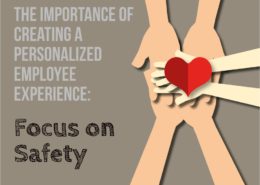
The importance of creating a personalized employee experience: Focus on Safety

Creating a personalized employee experience can help improve retention and loyalty

KNOWING WHERE TO INVEST YOUR CULTURE DOLLARS TO IMPROVE LOYALTY SHOULD BE YOUR #1 PRIORITY
 /wp-content/uploads/2022/12/FI-Largely.png 780 940 Chris Dornfeld /wp-content/uploads/2025/12/Whistle_Rewards_w_A_One10_Co-POS_Navy-300x150.png Chris Dornfeld2022-12-13 11:23:192024-02-15 16:07:23Whistle partners with Largely, the Candidate & Employee Experience Platform
/wp-content/uploads/2022/12/FI-Largely.png 780 940 Chris Dornfeld /wp-content/uploads/2025/12/Whistle_Rewards_w_A_One10_Co-POS_Navy-300x150.png Chris Dornfeld2022-12-13 11:23:192024-02-15 16:07:23Whistle partners with Largely, the Candidate & Employee Experience Platform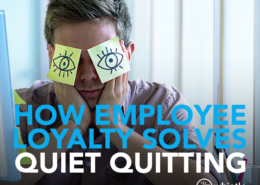 /wp-content/uploads/2022/12/FI-Quiet-Quitting.png 780 940 Chris Dornfeld /wp-content/uploads/2025/12/Whistle_Rewards_w_A_One10_Co-POS_Navy-300x150.png Chris Dornfeld2022-12-08 04:38:142022-12-11 19:31:52HOW EMPLOYEE LOYALTY SOLVES QUIET QUITTING
/wp-content/uploads/2022/12/FI-Quiet-Quitting.png 780 940 Chris Dornfeld /wp-content/uploads/2025/12/Whistle_Rewards_w_A_One10_Co-POS_Navy-300x150.png Chris Dornfeld2022-12-08 04:38:142022-12-11 19:31:52HOW EMPLOYEE LOYALTY SOLVES QUIET QUITTING /wp-content/uploads/2022/12/FI-Magic-Links-Whistle-App.png 780 940 Chris Dornfeld /wp-content/uploads/2025/12/Whistle_Rewards_w_A_One10_Co-POS_Navy-300x150.png Chris Dornfeld2022-12-02 22:23:482022-12-05 22:08:03Magic Links – New Whistle Feature
/wp-content/uploads/2022/12/FI-Magic-Links-Whistle-App.png 780 940 Chris Dornfeld /wp-content/uploads/2025/12/Whistle_Rewards_w_A_One10_Co-POS_Navy-300x150.png Chris Dornfeld2022-12-02 22:23:482022-12-05 22:08:03Magic Links – New Whistle Feature /wp-content/uploads/2022/12/FI-employee-loyalty-holiday-gift-ideas.png 900 1200 Chris Dornfeld /wp-content/uploads/2025/12/Whistle_Rewards_w_A_One10_Co-POS_Navy-300x150.png Chris Dornfeld2022-12-02 15:40:532022-12-02 19:09:32HOLIDAY GIFT AND PARTY IDEAS THAT DRIVE EMPLOYEE LOYALTY
/wp-content/uploads/2022/12/FI-employee-loyalty-holiday-gift-ideas.png 900 1200 Chris Dornfeld /wp-content/uploads/2025/12/Whistle_Rewards_w_A_One10_Co-POS_Navy-300x150.png Chris Dornfeld2022-12-02 15:40:532022-12-02 19:09:32HOLIDAY GIFT AND PARTY IDEAS THAT DRIVE EMPLOYEE LOYALTY /wp-content/uploads/2022/12/Jennifer-Ernst-Employee-Loyalty-Leader.png 900 1200 Chris Dornfeld /wp-content/uploads/2025/12/Whistle_Rewards_w_A_One10_Co-POS_Navy-300x150.png Chris Dornfeld2022-12-01 23:10:012022-12-02 17:55:29Employee Loyalty Leader Jennifer Ernst
/wp-content/uploads/2022/12/Jennifer-Ernst-Employee-Loyalty-Leader.png 900 1200 Chris Dornfeld /wp-content/uploads/2025/12/Whistle_Rewards_w_A_One10_Co-POS_Navy-300x150.png Chris Dornfeld2022-12-01 23:10:012022-12-02 17:55:29Employee Loyalty Leader Jennifer Ernst /wp-content/uploads/2022/11/Employee-Loyalty-Definition-FI-1.jpg 780 940 Ben Valenti /wp-content/uploads/2025/12/Whistle_Rewards_w_A_One10_Co-POS_Navy-300x150.png Ben Valenti2022-11-10 22:57:252022-11-11 00:42:25Employee Loyalty Definition
/wp-content/uploads/2022/11/Employee-Loyalty-Definition-FI-1.jpg 780 940 Ben Valenti /wp-content/uploads/2025/12/Whistle_Rewards_w_A_One10_Co-POS_Navy-300x150.png Ben Valenti2022-11-10 22:57:252022-11-11 00:42:25Employee Loyalty Definition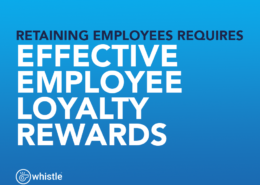
Effective Employee Loyalty Rewards Are Required to Retain Employees
 /wp-content/uploads/2022/09/Metrics-FI.png 780 940 Ben Valenti /wp-content/uploads/2025/12/Whistle_Rewards_w_A_One10_Co-POS_Navy-300x150.png Ben Valenti2022-09-22 20:55:162022-09-23 16:30:38Metrics – New Feature
/wp-content/uploads/2022/09/Metrics-FI.png 780 940 Ben Valenti /wp-content/uploads/2025/12/Whistle_Rewards_w_A_One10_Co-POS_Navy-300x150.png Ben Valenti2022-09-22 20:55:162022-09-23 16:30:38Metrics – New Feature /wp-content/uploads/2022/09/Whitney-Kenter.png 780 940 Chris Dornfeld /wp-content/uploads/2025/12/Whistle_Rewards_w_A_One10_Co-POS_Navy-300x150.png Chris Dornfeld2022-09-20 01:43:072022-09-21 17:03:55Employee Loyalty Leaders with Whitney Kenter
/wp-content/uploads/2022/09/Whitney-Kenter.png 780 940 Chris Dornfeld /wp-content/uploads/2025/12/Whistle_Rewards_w_A_One10_Co-POS_Navy-300x150.png Chris Dornfeld2022-09-20 01:43:072022-09-21 17:03:55Employee Loyalty Leaders with Whitney Kenter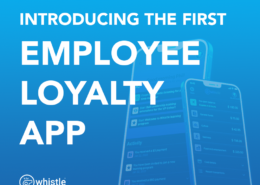 /wp-content/uploads/2022/09/The-first-employee-loyalty-app.png 780 940 Chris Dornfeld /wp-content/uploads/2025/12/Whistle_Rewards_w_A_One10_Co-POS_Navy-300x150.png Chris Dornfeld2022-09-13 04:52:092022-09-13 05:39:544 Key Elements of an Employee Loyalty App
/wp-content/uploads/2022/09/The-first-employee-loyalty-app.png 780 940 Chris Dornfeld /wp-content/uploads/2025/12/Whistle_Rewards_w_A_One10_Co-POS_Navy-300x150.png Chris Dornfeld2022-09-13 04:52:092022-09-13 05:39:544 Key Elements of an Employee Loyalty App /wp-content/uploads/2022/09/FI-ELL-David-Klein.png 780 940 Chris Dornfeld /wp-content/uploads/2025/12/Whistle_Rewards_w_A_One10_Co-POS_Navy-300x150.png Chris Dornfeld2022-09-01 19:19:292022-09-30 17:00:27Employee Loyalty Leaders with David Klein
/wp-content/uploads/2022/09/FI-ELL-David-Klein.png 780 940 Chris Dornfeld /wp-content/uploads/2025/12/Whistle_Rewards_w_A_One10_Co-POS_Navy-300x150.png Chris Dornfeld2022-09-01 19:19:292022-09-30 17:00:27Employee Loyalty Leaders with David Klein /wp-content/uploads/2022/08/FI-Challenges-with-employee-onboarding.png 780 940 Chris Dornfeld /wp-content/uploads/2025/12/Whistle_Rewards_w_A_One10_Co-POS_Navy-300x150.png Chris Dornfeld2022-08-23 21:02:002022-08-24 14:24:22Challenges with Employee Onboarding (and How to Solve Them)
/wp-content/uploads/2022/08/FI-Challenges-with-employee-onboarding.png 780 940 Chris Dornfeld /wp-content/uploads/2025/12/Whistle_Rewards_w_A_One10_Co-POS_Navy-300x150.png Chris Dornfeld2022-08-23 21:02:002022-08-24 14:24:22Challenges with Employee Onboarding (and How to Solve Them)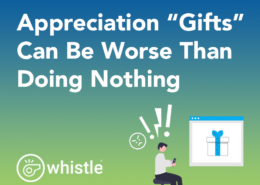 /wp-content/uploads/2022/08/FI-Appreciation-Gifts.png 780 940 Ben Valenti /wp-content/uploads/2025/12/Whistle_Rewards_w_A_One10_Co-POS_Navy-300x150.png Ben Valenti2022-08-18 01:05:102022-08-18 19:36:50Employee Appreciation “Gifts” Can Be Worse Than Doing Nothing
/wp-content/uploads/2022/08/FI-Appreciation-Gifts.png 780 940 Ben Valenti /wp-content/uploads/2025/12/Whistle_Rewards_w_A_One10_Co-POS_Navy-300x150.png Ben Valenti2022-08-18 01:05:102022-08-18 19:36:50Employee Appreciation “Gifts” Can Be Worse Than Doing Nothing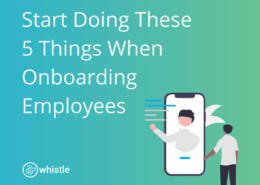 /wp-content/uploads/2022/08/Whistle-5-Onboarding-Things_thumbnail.png 780 940 Chris Dornfeld /wp-content/uploads/2025/12/Whistle_Rewards_w_A_One10_Co-POS_Navy-300x150.png Chris Dornfeld2022-08-16 16:10:442022-08-16 21:50:30Start Doing These 5 Things When Onboarding New Employees
/wp-content/uploads/2022/08/Whistle-5-Onboarding-Things_thumbnail.png 780 940 Chris Dornfeld /wp-content/uploads/2025/12/Whistle_Rewards_w_A_One10_Co-POS_Navy-300x150.png Chris Dornfeld2022-08-16 16:10:442022-08-16 21:50:30Start Doing These 5 Things When Onboarding New Employees /wp-content/uploads/2022/07/FI-Employee-Loyalty-Katie-Harman.png 780 940 Chris Dornfeld /wp-content/uploads/2025/12/Whistle_Rewards_w_A_One10_Co-POS_Navy-300x150.png Chris Dornfeld2022-08-08 13:52:042022-09-30 17:01:36Employee Loyalty Leaders with Katie Harman
/wp-content/uploads/2022/07/FI-Employee-Loyalty-Katie-Harman.png 780 940 Chris Dornfeld /wp-content/uploads/2025/12/Whistle_Rewards_w_A_One10_Co-POS_Navy-300x150.png Chris Dornfeld2022-08-08 13:52:042022-09-30 17:01:36Employee Loyalty Leaders with Katie Harman /wp-content/uploads/2022/08/Whistle-Blog_Burnout_940x780-1.png 780 940 Chris Dornfeld /wp-content/uploads/2025/12/Whistle_Rewards_w_A_One10_Co-POS_Navy-300x150.png Chris Dornfeld2022-08-04 22:57:272022-08-05 02:03:24No One is Immune to Employee Burnout — Not Even HR
/wp-content/uploads/2022/08/Whistle-Blog_Burnout_940x780-1.png 780 940 Chris Dornfeld /wp-content/uploads/2025/12/Whistle_Rewards_w_A_One10_Co-POS_Navy-300x150.png Chris Dornfeld2022-08-04 22:57:272022-08-05 02:03:24No One is Immune to Employee Burnout — Not Even HR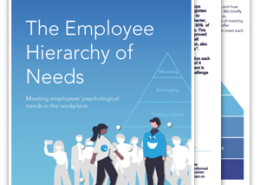 /wp-content/uploads/2022/07/employee-hierarchy-of-needs.png 300 300 Chris Dornfeld /wp-content/uploads/2025/12/Whistle_Rewards_w_A_One10_Co-POS_Navy-300x150.png Chris Dornfeld2022-07-25 18:08:332022-11-07 21:54:25The Employee Hierarchy of Needs
/wp-content/uploads/2022/07/employee-hierarchy-of-needs.png 300 300 Chris Dornfeld /wp-content/uploads/2025/12/Whistle_Rewards_w_A_One10_Co-POS_Navy-300x150.png Chris Dornfeld2022-07-25 18:08:332022-11-07 21:54:25The Employee Hierarchy of Needs /wp-content/uploads/2022/07/FI-Jennifer-Patterson.png 780 940 Chris Dornfeld /wp-content/uploads/2025/12/Whistle_Rewards_w_A_One10_Co-POS_Navy-300x150.png Chris Dornfeld2022-07-08 14:23:382022-09-30 17:02:42Employee Loyalty Leaders with Jennifer Patterson
/wp-content/uploads/2022/07/FI-Jennifer-Patterson.png 780 940 Chris Dornfeld /wp-content/uploads/2025/12/Whistle_Rewards_w_A_One10_Co-POS_Navy-300x150.png Chris Dornfeld2022-07-08 14:23:382022-09-30 17:02:42Employee Loyalty Leaders with Jennifer Patterson /wp-content/uploads/2022/06/FI-Rob-Seay.png 780 940 Chris Dornfeld /wp-content/uploads/2025/12/Whistle_Rewards_w_A_One10_Co-POS_Navy-300x150.png Chris Dornfeld2022-06-21 17:56:012022-09-30 17:03:48Employee Loyalty Leaders with Rob Seay
/wp-content/uploads/2022/06/FI-Rob-Seay.png 780 940 Chris Dornfeld /wp-content/uploads/2025/12/Whistle_Rewards_w_A_One10_Co-POS_Navy-300x150.png Chris Dornfeld2022-06-21 17:56:012022-09-30 17:03:48Employee Loyalty Leaders with Rob Seay /wp-content/uploads/2022/06/FI-New-Feature-Slack-Integration.png 780 940 Ben Valenti /wp-content/uploads/2025/12/Whistle_Rewards_w_A_One10_Co-POS_Navy-300x150.png Ben Valenti2022-06-01 21:31:492023-04-07 18:32:37New Feature – Slack Integration
/wp-content/uploads/2022/06/FI-New-Feature-Slack-Integration.png 780 940 Ben Valenti /wp-content/uploads/2025/12/Whistle_Rewards_w_A_One10_Co-POS_Navy-300x150.png Ben Valenti2022-06-01 21:31:492023-04-07 18:32:37New Feature – Slack Integration /wp-content/uploads/2022/05/FI-150B-industry.png 780 940 Ben Valenti /wp-content/uploads/2025/12/Whistle_Rewards_w_A_One10_Co-POS_Navy-300x150.png Ben Valenti2022-05-27 19:44:302022-05-27 20:45:03The $150 Billion Industry No One Likes
/wp-content/uploads/2022/05/FI-150B-industry.png 780 940 Ben Valenti /wp-content/uploads/2025/12/Whistle_Rewards_w_A_One10_Co-POS_Navy-300x150.png Ben Valenti2022-05-27 19:44:302022-05-27 20:45:03The $150 Billion Industry No One Likes
Pizza Parties Are Not the Answer to Your Retention Problems
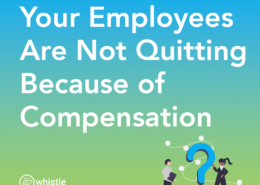
Your Employees Are Not Quitting Because of Compensation
 /wp-content/uploads/2022/03/Press-Release-1.png 780 940 Chris Dornfeld /wp-content/uploads/2025/12/Whistle_Rewards_w_A_One10_Co-POS_Navy-300x150.png Chris Dornfeld2022-03-01 16:35:112022-03-13 16:56:42Whistle Closes on $3.2 Million Seed Funding Round
/wp-content/uploads/2022/03/Press-Release-1.png 780 940 Chris Dornfeld /wp-content/uploads/2025/12/Whistle_Rewards_w_A_One10_Co-POS_Navy-300x150.png Chris Dornfeld2022-03-01 16:35:112022-03-13 16:56:42Whistle Closes on $3.2 Million Seed Funding Round /wp-content/uploads/2022/01/FI-Time-is-the-enemy.png 780 940 Drew Carter /wp-content/uploads/2025/12/Whistle_Rewards_w_A_One10_Co-POS_Navy-300x150.png Drew Carter2022-01-31 19:47:552022-02-01 20:06:42Employee Rewards: Time is the Enemy
/wp-content/uploads/2022/01/FI-Time-is-the-enemy.png 780 940 Drew Carter /wp-content/uploads/2025/12/Whistle_Rewards_w_A_One10_Co-POS_Navy-300x150.png Drew Carter2022-01-31 19:47:552022-02-01 20:06:42Employee Rewards: Time is the Enemy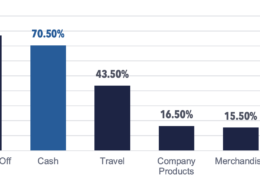 /wp-content/uploads/2022/01/Screenshot-2023-06-12-at-10.07.28-PM.png 780 1854 Chris Dornfeld /wp-content/uploads/2025/12/Whistle_Rewards_w_A_One10_Co-POS_Navy-300x150.png Chris Dornfeld2022-01-13 02:39:222023-06-13 03:15:49Data and Articles on Employee Loyalty in Banking
/wp-content/uploads/2022/01/Screenshot-2023-06-12-at-10.07.28-PM.png 780 1854 Chris Dornfeld /wp-content/uploads/2025/12/Whistle_Rewards_w_A_One10_Co-POS_Navy-300x150.png Chris Dornfeld2022-01-13 02:39:222023-06-13 03:15:49Data and Articles on Employee Loyalty in Banking /wp-content/uploads/2021/11/4-elements-of-onboarding.png 780 940 Chris Dornfeld /wp-content/uploads/2025/12/Whistle_Rewards_w_A_One10_Co-POS_Navy-300x150.png Chris Dornfeld2021-11-13 14:36:442022-09-13 05:42:48The 4 Elements of Great Employee Onboarding
/wp-content/uploads/2021/11/4-elements-of-onboarding.png 780 940 Chris Dornfeld /wp-content/uploads/2025/12/Whistle_Rewards_w_A_One10_Co-POS_Navy-300x150.png Chris Dornfeld2021-11-13 14:36:442022-09-13 05:42:48The 4 Elements of Great Employee Onboarding /wp-content/uploads/2021/11/fi-4-categories-of-learning-content.png 780 940 Chris Dornfeld /wp-content/uploads/2025/12/Whistle_Rewards_w_A_One10_Co-POS_Navy-300x150.png Chris Dornfeld2021-11-09 03:57:252021-11-09 19:46:05The 4 Categories of Learning Content
/wp-content/uploads/2021/11/fi-4-categories-of-learning-content.png 780 940 Chris Dornfeld /wp-content/uploads/2025/12/Whistle_Rewards_w_A_One10_Co-POS_Navy-300x150.png Chris Dornfeld2021-11-09 03:57:252021-11-09 19:46:05The 4 Categories of Learning Content /wp-content/uploads/2021/10/fi-microlearning-best-practices.png 780 940 Ben Valenti /wp-content/uploads/2025/12/Whistle_Rewards_w_A_One10_Co-POS_Navy-300x150.png Ben Valenti2021-10-14 18:00:142021-10-14 22:00:545 Microlearning Best Practices
/wp-content/uploads/2021/10/fi-microlearning-best-practices.png 780 940 Ben Valenti /wp-content/uploads/2025/12/Whistle_Rewards_w_A_One10_Co-POS_Navy-300x150.png Ben Valenti2021-10-14 18:00:142021-10-14 22:00:545 Microlearning Best Practices /wp-content/uploads/2021/10/FI-Employee-Turnover-so-high.png 780 940 Chris Dornfeld /wp-content/uploads/2025/12/Whistle_Rewards_w_A_One10_Co-POS_Navy-300x150.png Chris Dornfeld2021-10-13 18:17:522021-10-14 22:02:14Employee turnover is at an all time high
/wp-content/uploads/2021/10/FI-Employee-Turnover-so-high.png 780 940 Chris Dornfeld /wp-content/uploads/2025/12/Whistle_Rewards_w_A_One10_Co-POS_Navy-300x150.png Chris Dornfeld2021-10-13 18:17:522021-10-14 22:02:14Employee turnover is at an all time high
The hidden risk of diversity training, and what you should do about it

Manager training is costing you millions, and you don’t even know it
 /wp-content/uploads/2021/08/FI-Understanding-and-addressing-turnover.png 780 940 Drew Carter /wp-content/uploads/2025/12/Whistle_Rewards_w_A_One10_Co-POS_Navy-300x150.png Drew Carter2021-08-21 14:17:202021-11-28 20:02:51Understanding and Addressing Turnover in Manufacturing
/wp-content/uploads/2021/08/FI-Understanding-and-addressing-turnover.png 780 940 Drew Carter /wp-content/uploads/2025/12/Whistle_Rewards_w_A_One10_Co-POS_Navy-300x150.png Drew Carter2021-08-21 14:17:202021-11-28 20:02:51Understanding and Addressing Turnover in Manufacturing /wp-content/uploads/2021/08/FI-What-is-Microlearning-2.png 780 940 Chris Dornfeld /wp-content/uploads/2025/12/Whistle_Rewards_w_A_One10_Co-POS_Navy-300x150.png Chris Dornfeld2021-08-20 04:07:582021-09-22 14:25:12What is Microlearning? (And what are the benefits?)
/wp-content/uploads/2021/08/FI-What-is-Microlearning-2.png 780 940 Chris Dornfeld /wp-content/uploads/2025/12/Whistle_Rewards_w_A_One10_Co-POS_Navy-300x150.png Chris Dornfeld2021-08-20 04:07:582021-09-22 14:25:12What is Microlearning? (And what are the benefits?) /wp-content/uploads/2021/04/channel-learning-is-broken-whitepaper-cover.png 300 300 Chris Dornfeld /wp-content/uploads/2025/12/Whistle_Rewards_w_A_One10_Co-POS_Navy-300x150.png Chris Dornfeld2021-05-14 20:25:472024-01-11 21:55:12Channel Learning is Broken, and Microlearning Can Fix It
/wp-content/uploads/2021/04/channel-learning-is-broken-whitepaper-cover.png 300 300 Chris Dornfeld /wp-content/uploads/2025/12/Whistle_Rewards_w_A_One10_Co-POS_Navy-300x150.png Chris Dornfeld2021-05-14 20:25:472024-01-11 21:55:12Channel Learning is Broken, and Microlearning Can Fix It /wp-content/uploads/2021/05/making-friends-with-friction-cover.png 300 300 Drew Carter /wp-content/uploads/2025/12/Whistle_Rewards_w_A_One10_Co-POS_Navy-300x150.png Drew Carter2021-03-05 08:50:002024-01-11 21:54:47Making Friends with Friction
/wp-content/uploads/2021/05/making-friends-with-friction-cover.png 300 300 Drew Carter /wp-content/uploads/2025/12/Whistle_Rewards_w_A_One10_Co-POS_Navy-300x150.png Drew Carter2021-03-05 08:50:002024-01-11 21:54:47Making Friends with Friction







